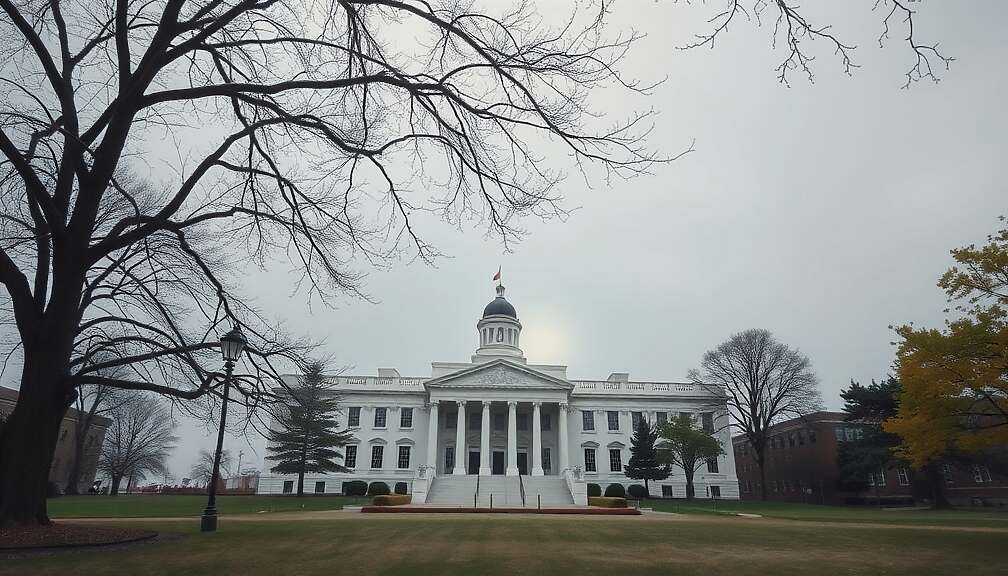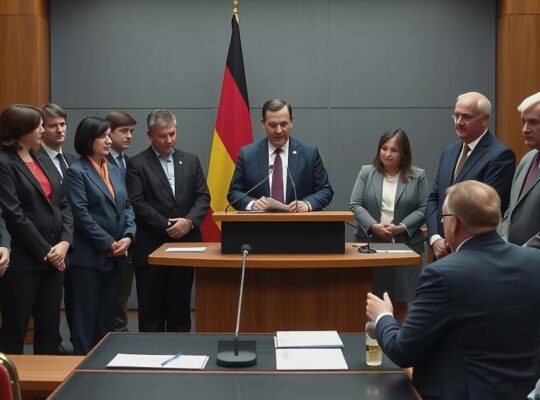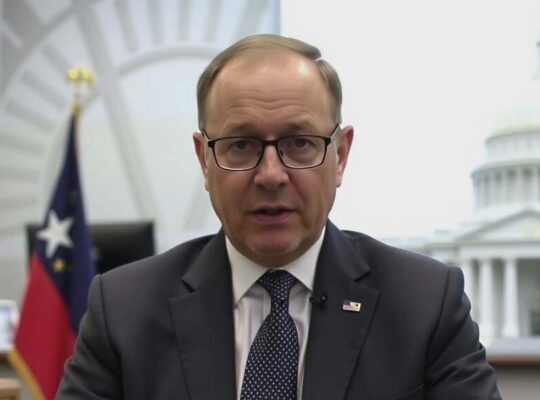A generational clash is brewing within Germany’s conservative ranks as the Junge Union (JU), the youth wing of the Christian Democratic Union (CDU) and Christian Social Union (CSU), is pushing for sweeping reforms targeting government spending and bureaucratic structures. Their proposals, outlined in a formal request document set to be presented at the upcoming Deutschlandtag conference in Rust, represent a pointed critique of the current administration’s fiscal priorities and efficiency.
The most prominent demand centers on the controversial planned expansion of the Chancellery, which the JU labels “irresponsible” given the current precarious state of the national budget. They argue that such a costly project is “simply not justifiable” and instead advocate for a radical shift towards a more streamlined operation involving desk-sharing and personnel reductions within the existing Chancellery infrastructure.
Beyond symbolic cost-cutting measures, the JU’s proposals delve into deeper structural reform, calling for the outright abolition of two federal ministries: the Federal Ministry for Economic Cooperation and Development (BMZ) and the Federal Ministry of Housing, Urban Development and Building (BMWSB). The rationale behind this bold suggestion is to eliminate perceived “duplications” and to enhance overall governmental efficiency by consolidating their responsibilities within existing departments.
The move signals a growing dissatisfaction amongst younger conservatives regarding what they view as bloated bureaucracy and unsustainable spending habits. While ostensibly aligned with the broader CDU/CSU platform, the JU’s demands represent a more aggressive approach to fiscal conservatism, potentially creating tension within the ruling coalition. The Deutschlandtag conference, a significant internal policy forum, will provide a crucial testing ground for the JU’s proposals and their reception amongst senior party members. The outcome could significantly influence the direction of government policy in the coming months, particularly as Germany grapples with increasing economic pressures and public scrutiny of government spending. Observers are keenly watching to see if the demands, driven by a new generation of politicians, represent a genuine call for reform or a strategic maneuver within the complex landscape of German politics.












